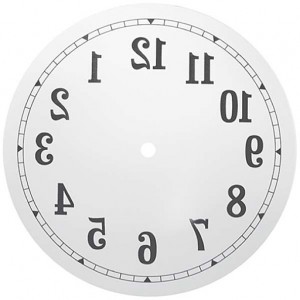Three Reasons Law School Will Surprise A Scientist
by Science to Law • April 30, 2013 • Law School
We scientists are a rational bunch. What’s more, we’re used to being recognized for our legitimate achievements in research, to tests that make sense, to grades that reflect how much we’ve learned, and going on the job market at the end of our studies.
Well, time to forget all that, you’re going to law school!
1. Law School Admissions Officers Don’t (Much) Care About Your PhD
 As a freshly-minted PhD, when’s the last time someone cared about your undergraduate grades? If asked for your academic credentials today you’d likely tout your graduate coursework, publications, and teaching experience before your years-old undergraduate grades. After all, your graduate achievements came after undergrad, so they more accurately reflect what kind of student you are today, right? Of course they do — but law schools don’t care.
As a freshly-minted PhD, when’s the last time someone cared about your undergraduate grades? If asked for your academic credentials today you’d likely tout your graduate coursework, publications, and teaching experience before your years-old undergraduate grades. After all, your graduate achievements came after undergrad, so they more accurately reflect what kind of student you are today, right? Of course they do — but law schools don’t care.
Prepare for the shock of your academic career when you discover that your undergraduate GPA and your LSAT scores are the chief determinants of your success in applying to the lion’s share of law schools. You can even be auto-admitted or auto-rejected based on these two factors alone. It’s not that graduate school isn’t considered — but it’s a “soft” factor, kind of like an interesting extracurricular. Get a PhD, or play the piano. Your choice.
If this doesn’t make sense to you — and it shouldn’t — consider this.
Whether they admit it or not (and many do), law schools live and die by the US News Best Law Schools rankings. One of the criteria on which each school is evaluated is the characteristics of its incoming class. (Circular, no?) And the main two criteria for this evaluation are undergraduate GPA and LSAT. This means schools are in effect penalized for enrolling students with lower-than-expected undergraduate GPA or LSAT scores — there’s no credit given for enrolling PhDs, any more than there is for enrolling pianists. Hence, schools are far less willing to overlook low undergraduate grades or weak LSAT scores, even when dealing with a top-shelf graduate student. See, it sort of makes sense.
This doesn’t mean your PhD is valueless in the law — quite the opposite. In fact, you’re reading this because you know many great career options exist. And the legal profession loves scientists. But that hasn’t really caught up to law school admissions, so prepare to forget about all that for a while. Remember instead that undergrad GPA and LSAT are king, at least until you pass the admissions hurdle (at which point you really can forget about them). Ultra-selective top schools can afford to deviate from this a bit, but it’s a good general rule of thumb.
2. Law School Grading Seems Irrational
 There’s enough here for an entire book, so let’s just do it quickly. Law school classes are (I hope) like nothing you’ve experienced in graduate school. A professor runs through a casebook, using some mixture of explanatory lecture and Socratic browbeating, covering material you’ve already read but haven’t really understood. Then it’s on to the next case. No feedback, no quizzes, no outlines, no takeaway points. Repeat week after week. At the end of the term there’s a single final exam that everyone’s terrified about because it’s worth 100% of the grade. This exam will present several overlong and improbably pessimistic hypothetical scenarios. You will identify little to no overlap between what was covered in lecture and what’s on the exam — it won’t ask about a single one of the cases you looked at, at least not in so many words. When you’ve completed the exam, it’ll be graded in a more subjective manner than you’re used to, and on a strict curve, and that exam will form the sum total of your grade in that course. Whether you spoke in class, sounded smart, whatever, none of it will matter. At the end of it all, you’ll realize you could have just read an outline and skipped all those lectures. Which is what a lot of people will do next semester.
There’s enough here for an entire book, so let’s just do it quickly. Law school classes are (I hope) like nothing you’ve experienced in graduate school. A professor runs through a casebook, using some mixture of explanatory lecture and Socratic browbeating, covering material you’ve already read but haven’t really understood. Then it’s on to the next case. No feedback, no quizzes, no outlines, no takeaway points. Repeat week after week. At the end of the term there’s a single final exam that everyone’s terrified about because it’s worth 100% of the grade. This exam will present several overlong and improbably pessimistic hypothetical scenarios. You will identify little to no overlap between what was covered in lecture and what’s on the exam — it won’t ask about a single one of the cases you looked at, at least not in so many words. When you’ve completed the exam, it’ll be graded in a more subjective manner than you’re used to, and on a strict curve, and that exam will form the sum total of your grade in that course. Whether you spoke in class, sounded smart, whatever, none of it will matter. At the end of it all, you’ll realize you could have just read an outline and skipped all those lectures. Which is what a lot of people will do next semester.
The “case-based Socratic instruction” used in law school could just as easily be called “hiding the ball.” You’re meant to read between the lines, almost literally, and pull out relevant holdings and takeaways from each case. Some professors make this easier than others, but it’s the same game every time. Then you’re off on your own to crunch out an outline and figure out what the law is, based on all those cases. It’s these extracted rules that you’ll turn around and apply on your exam. Again, this system makes sense in its own way: In a common law system, the law is developed piecemeal through incremental case holdings. As an attorney, you’ll be playing this exact game — reading murky cases and pulling out useful bits to figure out what the law is. And just like in law school, there often won’t be one clear answer.
The good news for you is that graduate students are actually quite good at this game once they figure it out. Just consider law school classes to be a research project: Figure out what’s going on in these cases before the professor tells you. That’ll work well, particularly if she never does.
3. Law School Gets Less Important The Longer You’re There
 In law school, your 1L (first year) grades are those most likely to determine your entire legal career. Yes, the grades you receive when you’re flapping about trying to figure out the aforementioned realities of law school instruction and grading. Those grades.
In law school, your 1L (first year) grades are those most likely to determine your entire legal career. Yes, the grades you receive when you’re flapping about trying to figure out the aforementioned realities of law school instruction and grading. Those grades.
This is due to the recruiting and employment model, which to a scientist makes about as much sense as anything else mentioned here.
Generally, lawyers who land jobs at firms after graduation do so through summer internships between 2L and 3L. (If you ask a lawyer “where did you summer?”, it’s this internship they’ll describe.) On-campus interviews for these summer internships occur before the start of 2L year, and are based on 1L grades — sometimes just the first half of 1L. Thus, your performance in the first half of your first year can (and likely will) determine where you interview, which summer job you get, and consequently, where you end up after graduation. This seems like a big deal, and it is. (A few students land law firm jobs off track, say by interviewing before their 3L year, but particularly in a down market this is very unusual.)
Upshot: The evaluations that matter the most are those that occur when you’ve just arrived and haven’t figured anything out.
The upside to this is that assuming you do well in 1L and don’t completely blow your 2L summer job, the rest of law school matters a whole lot less. Sure, 2L grades are important if you’re in the handful of top schools where a judicial clerkship is an option, but even there your 3L grades serve no recognizable purpose. The senioritis in law school puts all others to shame.
Now Let’s Apply!
 Let’s recap: Law school admissions officers will virtually ignore your graduate-level accomplishments, resurrecting instead your old undergraduate grades. Assuming these pass inspection, in your very first semester you’ll arrive to strange lectures from professors who refuse to give straight answers, culminating in 100% finals that for some reason are critically important in determining your legal career. And once you’ve started to figure this game out, you’ll realize it doesn’t really matter anymore.
Let’s recap: Law school admissions officers will virtually ignore your graduate-level accomplishments, resurrecting instead your old undergraduate grades. Assuming these pass inspection, in your very first semester you’ll arrive to strange lectures from professors who refuse to give straight answers, culminating in 100% finals that for some reason are critically important in determining your legal career. And once you’ve started to figure this game out, you’ll realize it doesn’t really matter anymore.
Law school rewards those who arrive prepared, already good at playing the game. Those who learn as they go along may not fare so well. (This, if you think about it, is a curious way to run an educational program.)
As a scientist, law school will be a totally new experience, and quite a shift from what you’re used to. Almost everything about it is different. This is a good thing. Law school itself was an experience I wouldn’t trade — quite aside from the fact that it’s a necessary hurdle to the wonderful world of science and law.
